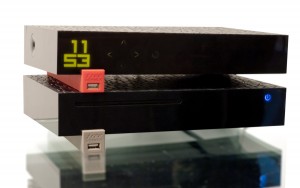What is the Declaration For The Future Of The Internet about?
Articles
US signs Declaration for the Future of the Internet alongside 60 global partners | Windows Central
US Pledges to Keep an Open Internet With Dozens of Other Countries – CNET
Governments Pledge to Keep an Open Internet, Not Russia, China (gizmodo.com)
From the horse’s mouth
The White House, USA
Declaration-for-the-Future-for-the-Internet_Launch-Event-Signing-Version_FINAL.pdf (whitehouse.gov)
My Comments
The US, European Union, Canada, UK, Australia, New Zealand and many other countries signed a declaration regarding the Internet. This declaration, called the “Declaration For The Future Of The Internet” is an effort by the Biden White House to reinforce what the Internet is to be about as an open network of networks with a fair playing field.
This is a response by these countries against digital authoritarianism that has been shown by authoritarian regimes like Russia, China, Iran and North Korea. It encompasses domestic and international online repression efforts like censorship along with international political destabilisation efforts like election / referendum interference, disinformation campaigns and cyberattacks.
There is also the same fear that due to populist strongman politics taking place ins some Western and other countries not associated with that kind of politics, the Internet as a symbol of freedom of expression could be under threat in those countries.
It is a reference for public policymakers, citizens, the business community and civil society organisations, but is non-binding. This is seen as a sticking point amongst some because sone countries like the USA aren’t toeing the line when it comes to a free and open Internet with issues like civilian surveillance. But some policymakers in some governments, international organisations and civil society could see this as a “gold standard” for what the Internet should be about.
The goal in this Declaration is to maintain what the Internet was about when it came about in the 1990s – an open network of networks that is freely accessible to all.
It is about protecting fundamental human rights and freedoms for all people in the online space. As well, it is about the global Internet that facilitates the free flow of information for citizens and businesses. That also includes inclusive and affordable connectivity to the Internet, which also factors in access from rural and remote areas. As well, there should be an increase in our digital skills so we can work the Internet competently.
Trust in the global online ecosystem is also underscored, including protection of the privacy and confidentiality of end-users. This is about safe secure private Internet use. For businesses of all sizes, it is about allowing them to compete, innovate and thrive in their own merits.
This goal is to be facilitated using reliable secure interoperable and sustainable infrastructure around the world. Here it would be managed in a multiple stakeholder approach to assure common benefit.
An issue that will need to he looked at is how online services are operated by the private sector. This is with expectations regarding end-user privacy along with their operation as a social good. It may also have to include support for healthy competition between online service providers so as to support innovation and service affordability.
I do see a strong possibility that the Declaration For The Future Of The Internet as a “Gold Standard” for what is expected of the Internet as part of a democratic society.


